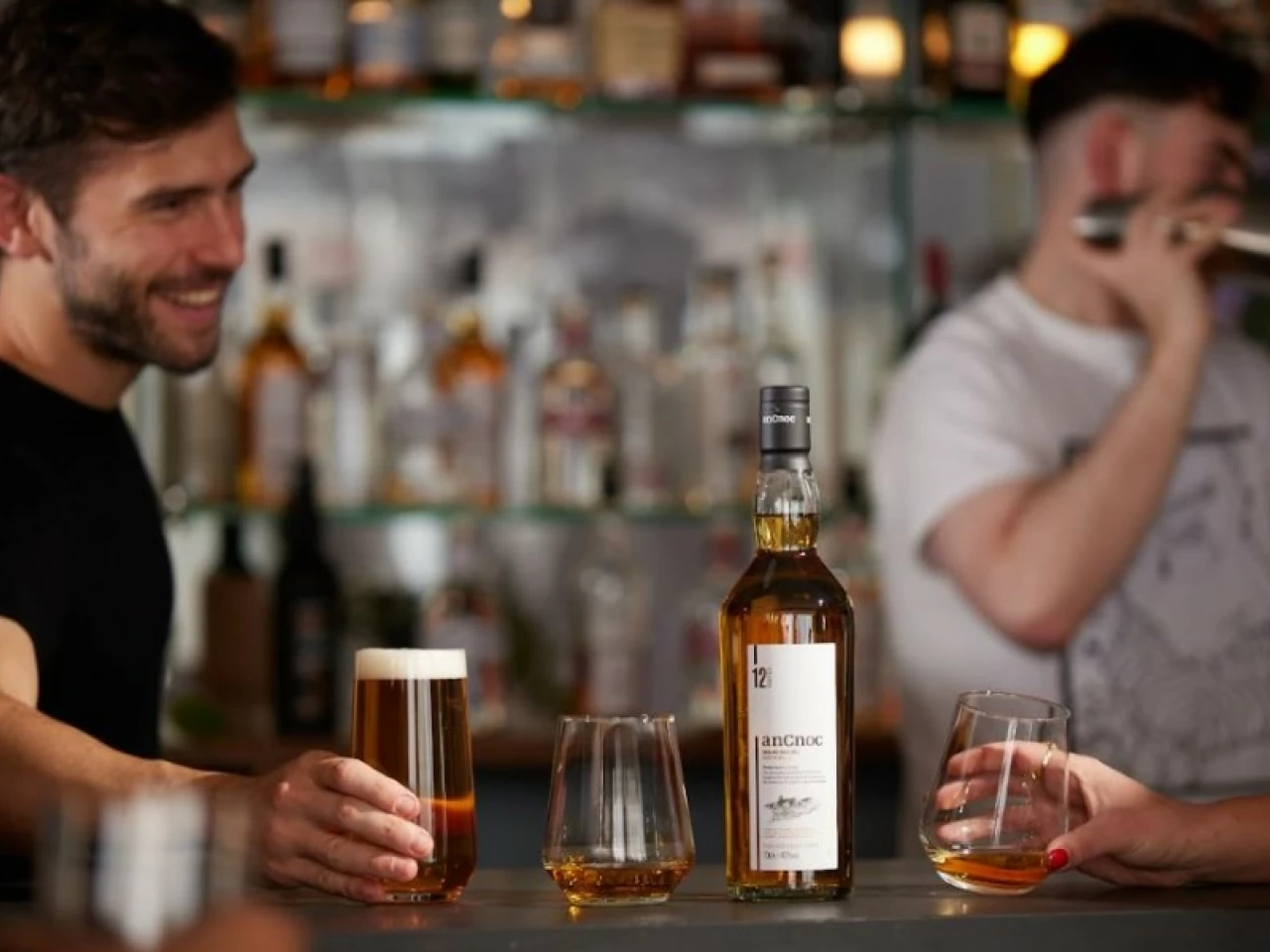'Whisky predictions for 2023' by Giles Gough
01.12.22

It’s fair to say that whisky used to be the spirits category that didn’t change much. The brands, the products and the needs of whisky consumers moved at a fairly glacial pace, with one year’s plan lookingvery much like the next. Just light the roaring fire, settle into the leather chair and hand me a dram please!
How things have changed. Today’s industry is full of fresh new brands, producers, products and marketing campaigns, all injecting some much needed diversity, dynamism and dare I say even ‘fun’ intothe category. So what are the trends whisky company’s should be looking out for in 2023? Here’s my pick of three of the most interesting trends to keep your eye on in the year ahead.
- Cross-category collaborations. Understanding the need to appeal to a broader audience, it makes sense for whisky brands to look outside their own category to recruit new drinkers. We’re going to see more interesting partnerships cropping up, such as Nick Offerman’s endorsement of a Lagavulin designed specifically to be paired with steak or Loch Lomond’s tie-in with London bakery chain Bread Ahead – both collaborations that are intended to simplify the whisky-making process and highlight the role that yeast plays in whisky making in a new an innovative way. anCnoc’s partnership with the Overtone brewery is a good example as is Old Pulteney’s successful pairing with oysters. Tapping into Old Pulteney’s natural affinity to oysters in terms of taste, provenance and consumer appeal, the brand’s collaboration with various oyster brands delivered brilliantly for Old Pulteney’s maritime proposition.
- The rise of celebrities. The drinks industry has a long and illustrious history of using the great and the good to promote and endorse products: from the favoured wines of Europe’s imperial royal courts back in the day, to the rise of Champagne as the favoured drink for people in power, from Napoleon to Churchill. Fast forward to the 21st Century and its modern-day celebrities who hold more brand power than ever in our industry – either as endorsers or owners. From Sean Combs’ pioneering association with Cîroc vodka back in 2007 to the current raft of celebrity-
owned brands, most notably in tequila – such as George Clooney’s Casamigos. The Scotch whisky industry is getting in on the act, with the likes of David Beckham’s association with Haig Club. But I predict we’ll see traditional whisky brands dabble more and more with the use of famous names in 2023 and beyond. Brands can leverage the mass appeal and credibility celebrities can bring to their product, as well as their power to reach and build relevance amongst new markets and drinkers.
- 'Drop culture' and digital innovation. In our social media savvy world, ‘drop culture’ is a growing phenomenon that even the most traditional whisky brands will be paying close attention to in 2023. This is a modern day build on the well-worn practise of limited-edition releases and scarcity marketing and it’s driving some exciting change in how spirits brands access consumers and vice versa. Look at Pernod Ricard’s recent collaboration with K-Pop musician LISA, which led to a ‘drop’ of limited-edition 18yr Chivas Regal, customised with the star’s signature. Many brand owners are also looking to innovate with how they distribute these ‘drops. BlockBar is a dedicated direct-to-consumer marketplace for luxury wine and spirits – which, rather than the traditional route to market where the very highest-end limited releases are sold through closed circles of private clients, brokers and ‘those in the know’, gives access to all in a highly innovative way. And launches are often accompanied by Non-Fungible Tokens: digital certificates of authenticity and proof of ownership, which can be sold and traded digitally as an asset.